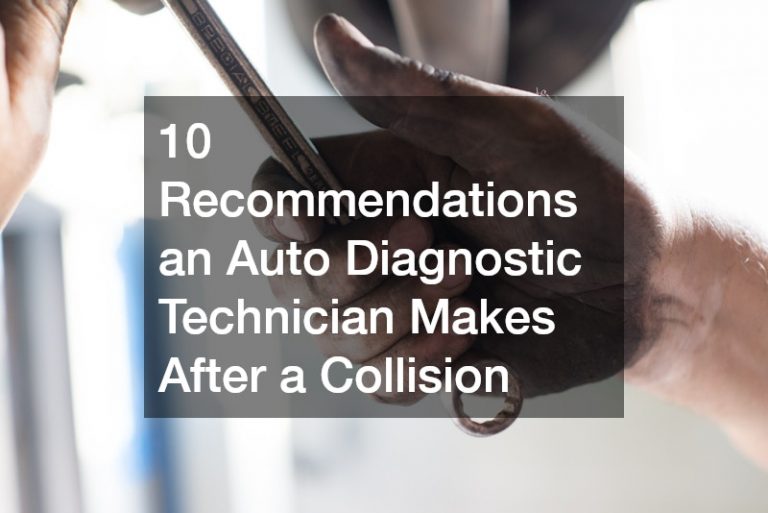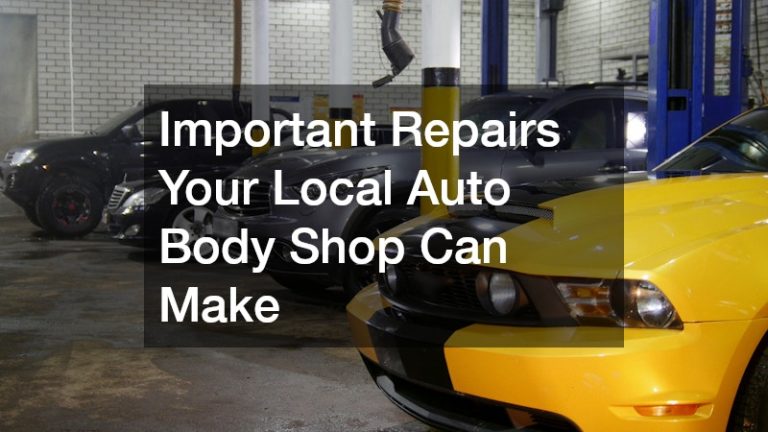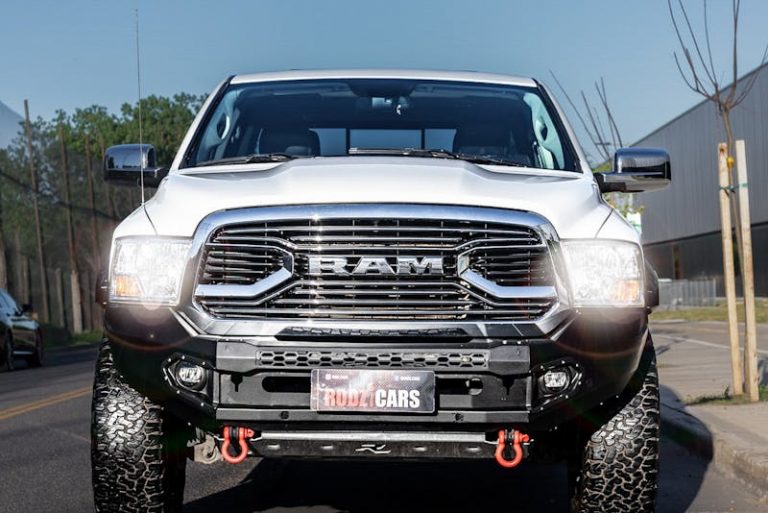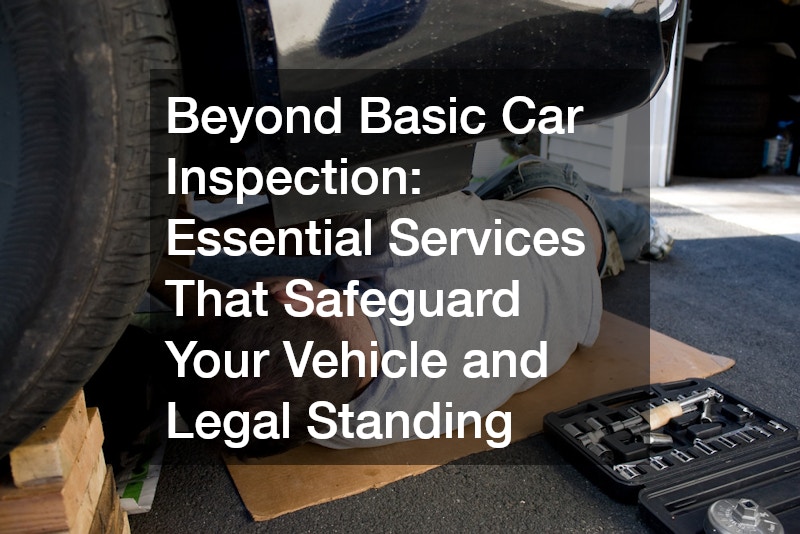

In this comprehensive guide, we will explore the most essential car care services that not only protect your vehicle investment but also uphold your legal rights. Maintaining your car is vital for its longevity and legal compliance, and understanding when to seek professional help can save you from costly repairs and legal complications. Whether you need routine maintenance from trusted auto repair shops or emergency assistance from tow services, having the right knowledge and connections can make all the difference.
Modern vehicle ownership involves navigating an increasingly complex landscape of maintenance requirements, legal obligations, and service options. From understanding when window services become legally mandatory to knowing the difference between routine maintenance and emergency repairs requiring immediate attention, informed car owners protect themselves through knowledge and preparation. The automotive industry has evolved to include specialized services like ceramic coatings for paint protection and professional golf cart repair for property owners with diverse vehicle needs.
Legal considerations have also become more complex, with situations ranging from minor traffic violations to serious incidents requiring car accident attorney representation or DUI attorney services. In extreme cases, understanding bail bond procedures can prove essential when legal issues temporarily impact your ability to maintain or access your vehicle. We’ll address the most commonly queried topics in this field, including when you might need specialized services like auto transmission mechanics or even legal support from accident attorneys, ensuring you’re prepared for whatever challenges vehicle ownership may present.
1. What Are the Best Preventive Maintenance Services for My Car?
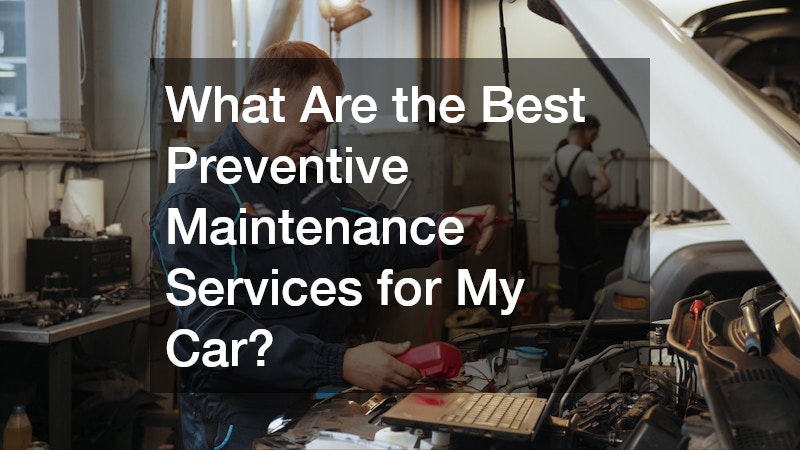
Preventive maintenance forms the cornerstone of vehicle protection, and selecting the right services can dramatically extend your car’s life while preserving its value. The most effective preventive services begin with establishing relationships with reputable auto repair shops that offer comprehensive maintenance programs.
Essential preventive services include regular oil changes, brake inspections, and transmission fluid checks by qualified auto transmission mechanics. Modern vehicles also benefit significantly from advanced protection services like ceramic coatings, which provide long-lasting paint protection and can increase resale value by 10-15%. Professional ceramic coatings create a barrier against UV damage, environmental contaminants, and minor scratches that would otherwise diminish your vehicle’s appearance and value.
Windows services also play a crucial preventive role. Regular windshield inspections can identify small chips that cost $50-100 to repair but $300-800 to replace if left untreated. Professional window services understand legal visibility requirements and work directly with insurance companies to minimize your costs.
For property owners with multiple vehicles, don’t overlook specialized maintenance needs. Golf cart repair and maintenance require different expertise than automotive care, focusing on electric systems and battery maintenance that standard auto repair shops may not provide.
2. How Often Should I Get My Vehicle Inspected?
Vehicle inspection frequency depends on multiple factors, including your state’s legal requirements, your driving habits, and your vehicle’s age and condition. Most states require annual safety inspections, while some also mandate emissions testing every two years for vehicles over a certain age.
Beyond legal requirements, quarterly inspections by trusted auto repair shops help identify potential problems before they become expensive failures. These inspections should include comprehensive checks of all major systems, with particular attention to transmission performance by qualified auto transmission mechanics who can detect early signs of wear or malfunction.
Professional inspections become particularly important if you’ve been involved in an accident, even minor ones. Hidden damage can affect vehicle safety and performance, potentially creating liability issues if not properly addressed. If you’ve recently dealt with an accident situation requiring car accident attorney involvement, ensure your vehicle receives a thorough professional inspection before returning to regular use.
Emergencies that require tow services often indicate underlying maintenance issues that regular inspections could have prevented. By catching problems early through consistent inspection schedules, you avoid the stress and expense of roadside emergencies.
3. Which Car Care Services Are Legally Required by State Law?
Understanding legally mandated car care services protects you from citations, fines, and potential liability issues. Most states require annual safety inspections that verify essential systems, including brakes, lights, steering, and suspension components, function properly.
Windshield services become legally significant when windshield damage impairs driver visibility. Most states prohibit driving with cracks in the primary viewing area, and officers can issue citations for windshield damage that compromises safety. Professional window services understand these legal requirements and can advise whether damage requires immediate repair to maintain legal compliance.
Legal compliance becomes particularly important if you’ve had interactions with law enforcement. A DUI attorney might advise maintaining impeccable vehicle condition to avoid providing officers with additional reasons for traffic stops. Similarly, if you’ve worked with accident attorneys following a collision, ensuring your vehicle meets all legal requirements demonstrates responsibility and can positively impact legal proceedings.
Understanding bailbonds procedures also relates to vehicle maintenance, as some legal situations may temporarily restrict your ability to maintain or access your vehicle. Proper legal representation helps navigate these complexities while protecting your transportation needs.
4. How Can Regular Oil Changes Impact My Car’s Performance?
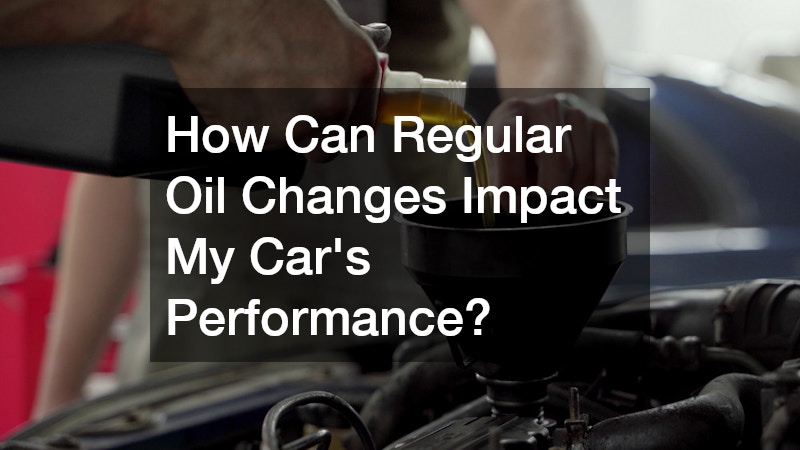
Regular oil changes represent the most fundamental vehicle maintenance service, directly impacting engine performance, longevity, and legal compliance with warranty requirements. Quality auto repair shops understand that oil change intervals depend on multiple factors, including driving conditions, vehicle age, and oil type.
Modern synthetic oils allow extended intervals between changes, but severe driving conditions, including frequent stop-and-go traffic, extreme temperatures, or dusty environments, require more frequent service. Professional technicians assess your specific driving patterns and recommend appropriate intervals that balance engine protection with cost efficiency.
Neglecting oil changes can void manufacturer warranties and create expensive engine damage that far exceeds the cost of regular maintenance. Documentation of regular oil changes becomes crucial for warranty protection and resale value. Emergencies requiring tow services often result from neglected oil changes that cause engine seizure or catastrophic damage.
5. What Are the Legal Implications of Ignoring a Recall Notice?
Ignoring vehicle recall notices creates serious legal and safety implications that extend far beyond simple inconvenience. Manufacturers issue recalls to address safety defects that could cause accidents, injuries, or death, making prompt response both legally prudent and morally responsible.
From a legal perspective, driving a vehicle with an unaddressed safety recall can create liability in accident situations. If an unrepaired recall defect contributes to an accident, victims may have stronger cases against you for damages. Car accident attorney specialists often investigate recall status when building cases, and unaddressed recalls can significantly impact legal outcomes.
Professional auto repair shops track recall notices and can advise you about outstanding recalls affecting your vehicle. Many recalls involve complex repairs that require specialized training and equipment, making professional service essential for proper completion.
6. How Do I Choose a Reliable Mechanic or Auto Service Shop?
Selecting reliable auto repair shops requires careful research and evaluation, as this decision significantly impacts both your vehicle’s performance and your financial protection. Start by verifying that shops employ ASE-certified technicians and maintain proper business licensing and insurance coverage.
Quality auto repair shops provide detailed written estimates, explain repairs in understandable terms, and stand behind their work with comprehensive warranties. For specialized needs, ensure shops have appropriate expertise. Auto transmission mechanics require specific training and equipment that general repair shops may not possess.
Consider shops that work directly with insurance companies and understand legal requirements. If you’ve needed car accident attorney services or dealt with accident attorneys, choose shops experienced in insurance claim processes and legal documentation requirements. Having trusted relationships with both general auto repair shops and specialists ensures you can get appropriate help regardless of the problem type.
7. What Should I Know About Warranty and Car Maintenance?

Understanding warranty requirements and maintenance obligations protects your investment while ensuring coverage remains valid throughout the warranty period. Manufacturer warranties typically require maintenance at specified intervals using approved parts and procedures, making documentation crucial for warranty protection.
Keep detailed records of all services performed, including receipts from auto repair shops, documentation from auto transmission mechanics for specialized services, and records of any protective treatments like ceramic coatings that demonstrate care for your vehicle. Many warranty violations result from incomplete documentation rather than actual maintenance neglect.
Some protective services, like ceramic coatings, may enhance warranty protection by preventing damage that could otherwise void coverage. Professional application documentation can demonstrate proactive care that supports warranty claims for paint or finish issues.
8. How Does Tire Maintenance Affect Vehicle Safety Standards?
Proper tire maintenance directly impacts vehicle safety, legal compliance, and your protection in accident situations. Most states have legal requirements for minimum tread depth, typically 2/32 inch, though safety experts recommend replacement at 4/32 inch for optimal performance.
Regular tire maintenance includes pressure checks, rotation, alignment, and tread depth monitoring. Professional auto repair shops provide comprehensive tire services and can identify wear patterns that indicate alignment problems, suspension issues, or other mechanical concerns that affect safety and performance.
Tire-related accidents often result in serious legal consequences, particularly if improper maintenance contributed to the incident. Car accident attorney investigations frequently include tire condition analysis, and worn or improperly maintained tires can significantly impact liability determinations.
9. What Are the Environmental Benefits of Regular Vehicle Maintenance?
Regular vehicle maintenance provides significant environmental benefits while potentially offering legal and financial advantages. Well-maintained vehicles produce fewer emissions, consume less fuel, and generate less waste, contributing to improved air quality and reduced environmental impact.
Professional auto repair shops understand environmental regulations and proper disposal procedures for automotive fluids, filters, and components. Transmission maintenance by qualified auto transmission mechanics prevents fluid leaks that can contaminate soil and groundwater while improving fuel efficiency.
Advanced protective services like ceramic coatings extend vehicle life and reduce the need for frequent repainting or refinishing, which involves environmentally harmful chemicals and processes. Environmental compliance becomes particularly important for commercial vehicle operators who must demonstrate environmental responsibility.
10. How Can I Protect Myself from Warranty Scams and Frauds?

Protecting yourself from warranty scams and automotive fraud requires understanding common tactics and maintaining relationships with trusted service providers. Legitimate auto repair shops provide detailed written estimates, explain repairs clearly, and never pressure customers into immediate, expensive repairs.
Be particularly cautious of services offered after minor accidents or following contact with tow services. Some unscrupulous operators target accident victims with inflated repair estimates or unnecessary services. If you’ve worked with car accident attorney professionals, they can often recommend trusted repair facilities with proven track records.
Verify service provider credentials through state licensing boards and professional association memberships. Understanding the difference between legitimate automotive services and potential scams becomes crucial when dealing with specialized services like ceramic coatings or golf cart repair.
If legal issues arise from automotive fraud, having established relationships with legal professionals, including DUI attorney specialists or accident attorneys, can provide valuable guidance. However, the best protection comes from careful service provider selection and maintaining detailed documentation of all automotive transactions.
Understanding and implementing essential car care services is fundamental in safeguarding your vehicle investment and ensuring adherence to legal obligations. This guide provides insights into the top concerns and queries, helping you make informed decisions about your vehicle maintenance regimen.
The key to successful vehicle ownership lies in building relationships with trusted professionals before you need them. Whether you need routine maintenance from qualified auto repair shops, specialized services from auto transmission mechanics, emergency assistance from reliable tow services, or legal support from experienced accident attorneys, having these relationships in place transforms potential crises into manageable situations.
Remember that vehicle maintenance extends beyond mechanical services to include protective treatments like ceramic coatings, essential safety services like professional window services, and even specialized care like golf cart repair. These diverse services work together to create a comprehensive protection strategy that preserves your vehicle’s value while ensuring optimal performance and legal compliance.
Legal preparedness is equally important, understanding when you might need car accident attorney representation, DUI attorney services, or even knowledge about bail bond procedures. The relationships you build with trusted auto repair shops, qualified auto transmission mechanics, reliable tow services, and experienced legal professionals create a safety net that transforms unexpected challenges into manageable situations. This network approach to vehicle ownership ensures you have expert guidance available, whether you’re dealing with routine maintenance questions or facing complex legal scenarios that could impact your driving privileges and vehicle access.
By taking a proactive approach to vehicle care and legal preparedness, you protect both your financial investment and your legal rights while ensuring reliable, safe transportation for years to come.

